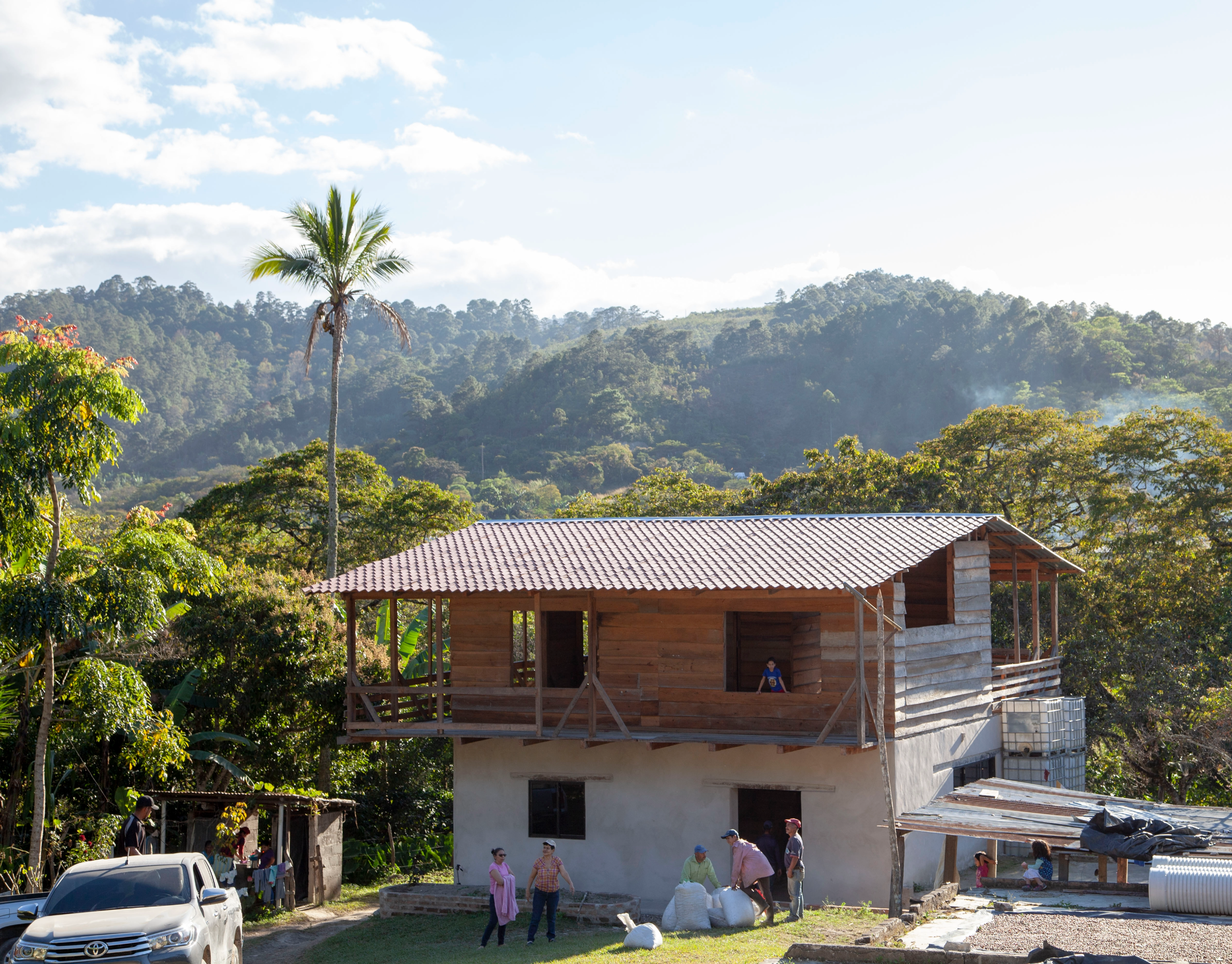The Clave de Sol farm is located in the village of El Rincon in Marcala, in the department of La Paz, at an altitude of 1,300 metres. Coffee has been grown with passion there for generations, and production now extends over 8.5 hectares. This year, the region produced 112 bags of green coffee. The farm is named after a musical note that symbolises life, on account of its round shape; a beautiful image and a reminder that the Clave de Sol farm does everything possible to preserve its surrounding fauna and flora through concrete actions. Trees are planted to create shade, organic fertilisers are used designed to strengthen the plants and coffee trees, the fruit trees are harvested and the coffee plants are renewed regularly. All are actions that embody the farm’s values. Clave de Sol is practically attached to COMSA, and they have been working together for years. This physical proximity also says a lot about Betty’s philosophical belief and commitment to the company. The farm is managed according to an agroforestry system and has its own mill (húmedo and seco beneficio, African beds, etc.). The main varieties grown at the farm are Icatu and Typica. Betty also produces Bourbon, Lempira and Parainema.

HHonduras
Farm
Miriam Elisabeth Perez
Clave de Sol
Marcala
About
The farm in detail
Total number of hectares
8 Altitude
1300 Environment
Mountainous Agroforestry level
3 - Forest
Marcala is a municipality located in the department of La Paz, in southwest Honduras. A few years ago, there was a large cooperative to which many small producers belonged. When it broke up, the cooperative abandoned all its member producers who found themselves without a mill for their coffees. A lot of small producers then decided to join forces to create a private cooperatives.
Marcala has a mill for dry and wet coffee preparation. The producers process most of their coffees themselves. They buy very little parchment coffee, and when they do, they buy only from producers to whom they have given coffee processing recommendations.
The Marcala appellation is characterised by its:
- 2 500 producers
- 19 municipalities, in 3 departments, all with a history of coffee production in Marcala
- farming at a minimum altitude of 1,100 metres
- characteristic profile with a medium to high acidity, lots of body and spicy notes
The department of La Paz is located in the extreme southwest of Honduras, on the border with El Salvador, at an altitude of between 1,000 and 1,600 meters above sea level. The department was created on 28 May 1869. Prior to its creation as a department, it belonged to the department of Comayagua, the historic centre of coffee production in Honduras.
The department of La Paz covers an area of 2,525 km² and its capital is the city of La Paz. Its territory is divided into 19 municipalities, 114 villages and 1,143 hamlets. Its inhabitants are mainly engaged in agriculture, livestock farming and trade. The main crops are coffee, corn, henequen, sugar cane and fruit.








